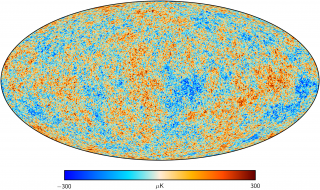Bibcode
Fendt, W. A.; Chluba, J.; Rubiño-Martín, J. A.; Wandelt, B. D.
Referencia bibliográfica
The Astrophysical Journal Supplement, Volume 181, Issue 2, pp. 627-638 (2009).
Fecha de publicación:
4
2009
Número de citas
47
Número de citas referidas
43
Descripción
We present RICO, a code designed to compute the ionization fraction of
the universe during the epoch of hydrogen and helium recombination with
an unprecedented combination of speed and accuracy. This is accomplished
by training the machine learning code PICO on the calculations of a
multilevel cosmological recombination code which self-consistently
includes several physical processes that were neglected previously.
After training, RICO is used to fit the free electron fraction as a
function of the cosmological parameters. While, for example, at low
redshifts (z lsim 900), much of the net change in the ionization
fraction can be captured by lowering the hydrogen fudge factor in
RECFAST by about 3%, RICO provides a means of effectively using the
accurate ionization history of the full recombination code in the
standard cosmological parameter estimation framework without the need to
add new or refined fudge factors or functions to a simple recombination
model. Within the new approach presented here, it is easy to update RICO
whenever a more accurate full recombination code becomes available. Once
trained, RICO computes the cosmological ionization history with
negligible fitting error in ~10 ms, a speedup of at least 106
over the full recombination code that was used here. Also RICO is able
to reproduce the ionization history of the full code to a level well
below 0.1%, thereby ensuring that the theoretical power spectra of
cosmic microwave background (CMB) fluctuations can be computed to
sufficient accuracy and speed for analysis from upcoming CMB experiments
like Planck. Furthermore, it will enable cross-checking different
recombination codes across cosmological parameter space, a comparison
that will be very important in order to assure the accurate
interpretation of future CMB data.
Proyectos relacionados

Anisotropía del Fondo Cósmico de Microondas
El objetivo general de este proyecto es determinar y estudiar las variaciones espaciales y espectrales en la temperatura del Fondo Cósmico de Microondas y en su Polarización en un amplio rango de escalas angulares que van desde pocos minutos de arco hasta varios grados. Las fluctuaciones primordiales en la densidad de materia, que dieron origen a
Rafael
Rebolo López